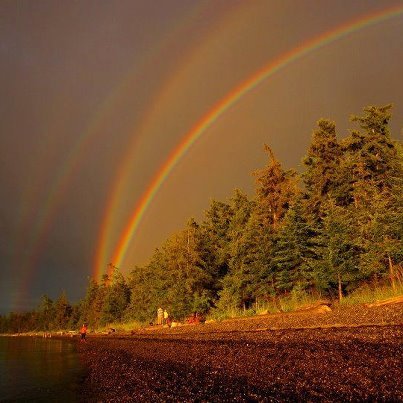Gorilla Glue is to Nevada what duct tape is to West Virginia: the cure-all answer to every ill, or at least so says my Nevadan friend Clayton, who absolutely swears by the miraculous powers of Gorilla Glue.
He isn’t wrong.
The other day, noticing that one of my kitchen chairs cross pieces was simply resting on its perch and that the cushion of another was doing the same, Clayton opined that Gorilla Glue would fix them right up.
“Gorilla Glue?” I asked.
“Yes. Gorilla Glue. It’s way better than Super Glue,” responded Clayton, in his best stentorian preacher tone – the voice we preacher-types use to convey Great Truths, so he had to be believed.
A few days later, on the strength of Clayton’s recommendation, I made my Gorilla Glue purchase. Turns out Clayton’s more right than even he could have guessed. Having attained bonding success among and between the component parts of my kitchen chairs with the miraculous Gorilla Glue, I thought I’d move on to my car.
There’s a coverlet for the stick shift housing that had come loose and I kept dropping stuff where it should not be dropped. “Ah hah,” I thought to myself. “I’ll put on some Gorilla Glue and fix that baby right up.”
And so I did.
At the time, I didn’t worry too much about the drop of Gorilla Glue that dripped down into the gear box. I thought about it, I said “oops,”, I laughingly hoped I hadn’t accidentally glued anything important, but I didn’t worry about it . . . until the next morning, when I tried to shift into reverse to back out of the driveway, only to find that I could only shift into 1st and 2nd gears – an unfortunate development, particularly as the car was faced nose in to the garage door.
“Hmmmm.” After this thoughtful reflection on my situation, I went and got the Gorilla Glue bottle to read, for the first time, the instructions (in my defense, half the instructions – the important half, were on the reverse side of the tiny sheet affixed to the back of the bottle – it took me 10 minutes to painstakingly peel the sheet off and another ten to separate the tiny sheets so that I could read about how to undo what was already done: “take a knife or scraper or sandpaper and chip the glue off” – not a good sign).
But what did I have to lose? Armed with the dullest sharp knife I could find, I bravely returned to the car. But before stabbing my gear mechanism blindly, I thought I’d at least try again. There was no conscious prayer at this point, but I did mutter a heartfelt, “please”.
And low and behold, the stick shift moved from 1st to 2nd to 3rd to 4th gears. And, best of all, reverse. But no go for 5th gear (at this point, I had forgotten that my car actually has six gears). My conclusion in light of the 150-mile trip I was about to take through the mountains? Well, if I have to do it without 5th gear, I’ll just drive slow – real slow – but at least I’ll get there.
And off I went.
And just past Miss Pearl’s house, the first spot where I can pick up any speed, I eased up from 1st to 2nd - no problem . . . then to 3rd – all good; then 4th . . . great! And I hovered there in 4th gear for a few moments, during which I said my first conscious prayer of the day: “Lord, please, please, please, let it go into 5th gear”; and then I slowly depressed the clutch and moved the stick from 4th position into 5th – as smooth as a knife through butter.
I am not ashamed to admit that I laughed and I cried and then laughed some more – how awesomely silly that God would answer this prayer. Nor am I embarrassed to admit that whenever I slid into 5th gear this trip, I said a little thank you – served up with a smile.
How lucky, how blessed, am I?
I know there are those who choose not to bother God with the “small stuff”, but here’s the thing: who am I to even know what the small and big stuff are in the eyes of God? And who says God’s too busy to care about the small stuff? I don’t know about you, but most of my life is lived in the small stuff of life. Most days, there are no life and death moments for me. There’s just the small stuff. If I don’t include God in my small stuff, I don’t include God in much of my life at all.
So thank you Holy Spirit for that well-placed whisper and thank you God for caring about the small stuff. Amen.
PS And thank you, Clayton for the heads up on Gorilla Glue – a warning to the inexperienced might be prudent next time.












